Corporation tax: MPs told devolution bill will be introduced 'shortly'
- Published
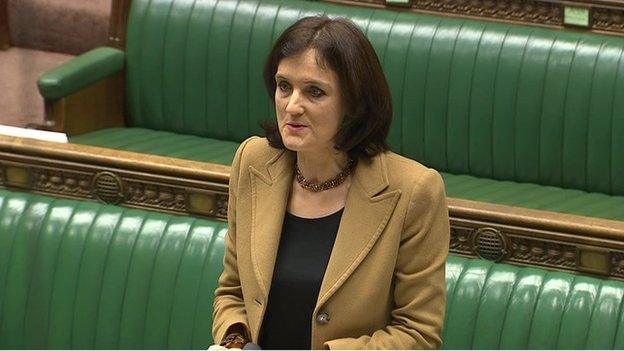
Theresa Villiers told the House of Commons that devolving corporation tax powers "could have a significantly transformative effect" on Northern Ireland's economy
New legislation aimed at devolving corporation tax to Northern Ireland will be presented to Parliament shortly, the secretary of state said.
Theresa Villiers said the government would use "all its best endeavours" to pass it before May's general election.
Her remarks came in a Commons statement about the Stormont House Agreement.
However, Shadow Secretary of State Ivan Lewis said Labour was concerned at what he described as the government's "rush" to introduce the new legislation.
The devolution of corporation tax was a key demand of political leaders in Northern Ireland in the run up to the Stormont House Agreement, which was finalised in Belfast last month after 12 weeks of inter-party talks.
'Significant step forward'
The talks were convened by Ms Villiers in a bid to sort out enduring problems at Stormont, including the Northern Ireland Executive's budget, welfare reform, flags, parades and the legacy of the Troubles.
The five largest parties in Northern Ireland reached a broad agreement on 23 December, mainly on financial matters, with the government pledging to give Stormont an extra £2bn in spending and borrowing power.
Addressing the House of Commons about the Stormont House Agreement on Wednesday, Ms Villiers said the deal "represents a genuine and significant step forward for Northern Ireland, offering the prospect of real progress on some of the most intractable issues"
She said the proposed devolution of corporation tax was a "momentous" change.
"The parties in Northern Ireland believe that corporation tax devolution can help them to rebalance the economy and attract investment because of Northern Ireland's unique position of having a land border with the Republic of Ireland," she told MPs.
'Very disappointed'
However, Mr Lewis said: "We believe there should be a proper consultation process, including an analysis of the financial impact of significant reductions of corporation tax on Northern Ireland's block grant, before introducing legislation."
Ms Villiers said she was "very disappointed" by the Labour MP's remarks.
She claimed that devolving corporation tax powers "could have a significantly transformative effect on Northern Ireland's economy".

The agreement on 23 December addressed a number of contentious issues that have been affecting the work of the Northern Ireland Assembly
The Democratic Unionist Party (DUP) MP Sammy Wilson asked the secretary of state about the timetable for the legislation.
Ms Villiers said that when legislation was introduced at this stage in a parliament, there was a risk time would run out and the government would be dependent on opposition support.
'Bad faith'
She told MPs: "We had hoped to introduce the legislation in December. Then we would have been pretty confident of getting it through in time."
She added: "Given the delay of a few weeks it is more uncertain... but we will do our very best and try to get this legislation on the statute book."
Several MPs also raised the issue of parading, and in particular the secretary of state's decision not to go ahead with a proposal to set up a panel to examine the parading dispute in north Belfast.
The DUP's Westminster leader Nigel Dodds, who is MP for the area, claimed that the scrapping of the panel was "an act of gross bad faith".
Ms Villiers replied that the idea of a panel "did not have enough support".
'Parking garage'
She said the unionist coalition which had called for the panel "could not produce a public statement of support" and had broken up because the smaller parties had left.
SDLP MP Mark Durkan asked the secretary of state if she "regretted her misadventure" of proposing the parades panel.
Ms Villiers said the panel was "well intentioned".
"We need to find an inclusive process which can engage as widely as possible. It became apparent the panel could not do that," she added.
Alliance MP Naomi Long said while the Stormont House Agreement provided a "road map" for many issues, on parading and flags it had become a "parking garage".
- Published5 January 2015
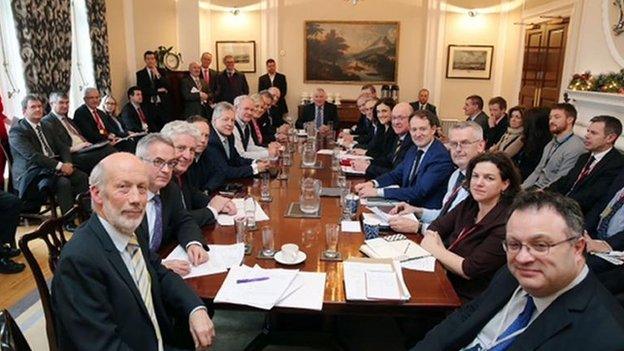
- Published30 December 2014
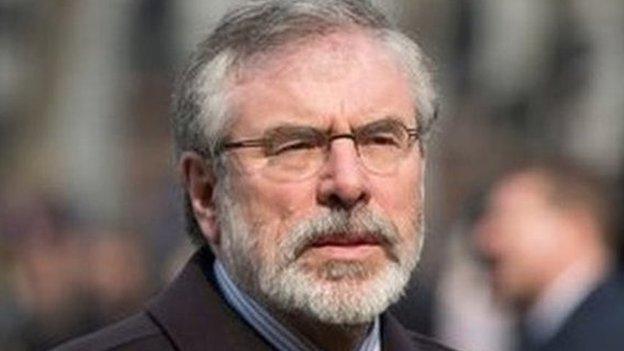
- Published24 December 2014

- Published23 December 2014
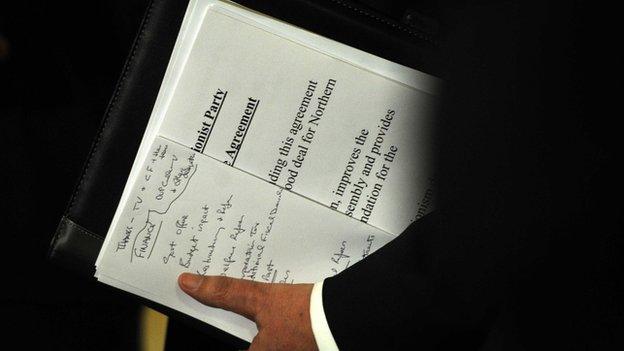
- Published23 December 2014
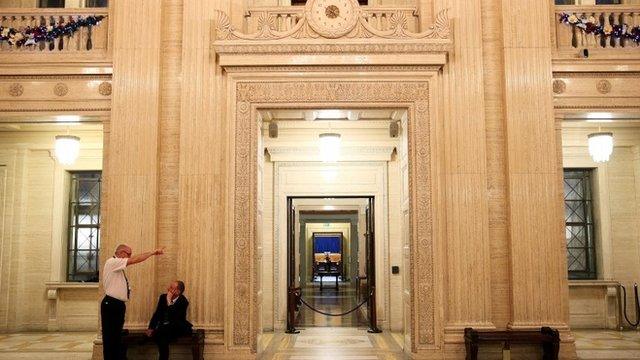
- Published23 December 2014
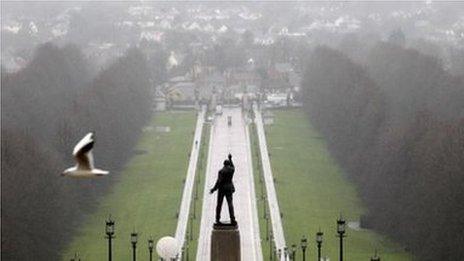
- Published19 December 2014
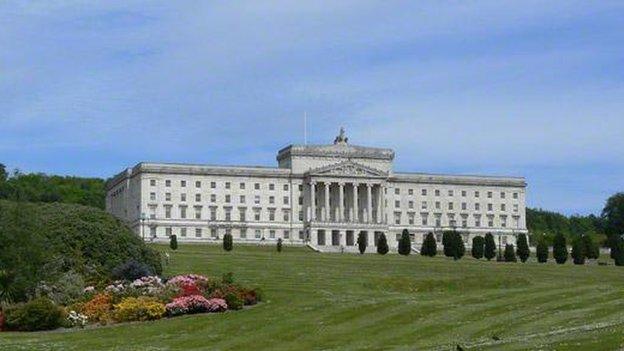
- Published12 December 2014
